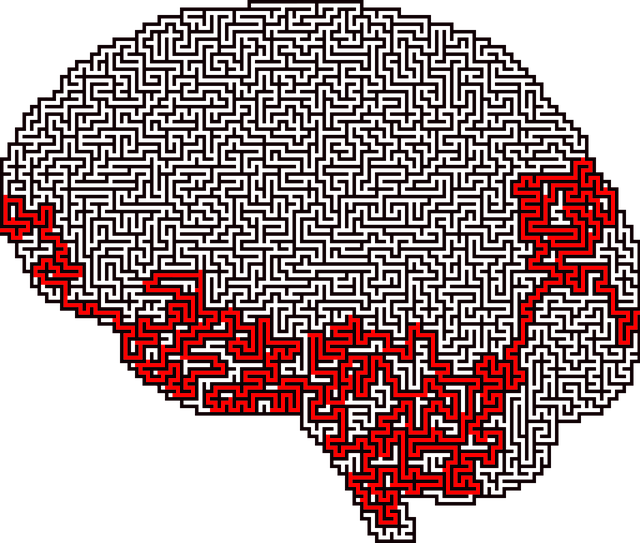In a fast-paced world, chronic stress from various sources impacts mental health, leading to issues like anxiety and depression. "Centennial Divorce Therapy" tackles this by addressing mental disconnection caused by prolonged stress. It promotes tailored stress reduction techniques, including therapy, journaling, CBT, mindfulness, and lifestyle changes, to enhance resilience. This holistic approach, focusing on self-compassion, personalized coping strategies, and communication skills, equips individuals to navigate modern life's challenges effectively, preventing emotional distress and fostering long-term well-being.
“In today’s fast-paced world, stress has become an inescapable aspect of modern life. This article explores comprehensive strategies for managing stress, empowering individuals to navigate its complexities. We delve into the profound impact of chronic stress and its root causes, offering insights from the perspective of Centennial Divorce Therapy. Discover effective techniques, including cognitive behavioral therapies and mindfulness practices, designed to foster resilience and promote long-term well-being.”
- Understanding Stress: Its Impact and Causes in Modern Life
- The Role of Centennial Divorce Therapy in Teaching Effective Stress Management
- Cognitive Behavioral Techniques for Stress Reduction
- Mindfulness and Meditation Practices for Daily Relaxation
- Building Resilience: Lifestyle Changes for Long-Term Stress Management
Understanding Stress: Its Impact and Causes in Modern Life

In modern life, stress has become an omnipresent companion for many individuals. From demanding careers to complex personal relationships, various factors contribute to our overall mental load. Understanding stress involves recognizing its multifaceted nature and impact on both physical and emotional well-being. Chronic stress, left unaddressed, can lead to significant health issues, exacerbating conditions like anxiety and depression, and even contributing to more severe ailments. The relentless pace of contemporary life often leaves people feeling overwhelmed, leading to what is commonly known as a “centennial divorce therapy” – the breakdown of mental connections due to prolonged stress.
The causes of stress are diverse and unique to each individual. Work-life balance, financial pressures, relationships, health concerns, and even cultural expectations can all play significant roles in triggering stress responses. To counteract these effects, various stress reduction methods have gained prominence, including emotional healing processes such as therapy, mental wellness journaling exercises, and other therapeutic practices. By incorporating these techniques into daily routines, individuals can better navigate the challenges of modern living and foster resilience against the adverse effects of stress.
The Role of Centennial Divorce Therapy in Teaching Effective Stress Management

Centennial Divorce Therapy offers a unique perspective on stress management by addressing the interconnectedness of mental and emotional well-being. In today’s fast-paced world, where burnout prevention is a growing concern, this therapeutic approach provides valuable tools for individuals seeking to navigate life’s challenges with resilience. Through compassion cultivation practices, clients learn to foster self-compassion, which is essential in managing stress responses effectively. By understanding the root causes of their distress and developing coping strategies tailored to their needs, individuals can enhance their mental wellness.
The therapy encourages a holistic view of stress management, moving beyond mere symptom relief. It aims to empower individuals with skills to cultivate long-term mental wellness and emotional balance. This is particularly beneficial for those struggling with the pressures of modern life, offering a sanctuary to explore and develop compassion-based strategies that can be integrated into daily routines. As a result, clients gain a deeper understanding of themselves and learn to respond to stressors with grace and composure, ensuring they remain equipped to face future challenges.
Cognitive Behavioral Techniques for Stress Reduction

Cognitive Behavioral Techniques (CBT) offer a powerful approach to stress management and have been widely recognized in Centennial Divorce Therapy. This evidence-based method focuses on identifying and changing negative thought patterns, beliefs, and behaviors that contribute to high stress levels. By challenging unhelpful thoughts and replacing them with more realistic, positive ones, individuals can reduce the impact of stressful situations. CBT encourages a more balanced perspective, fostering resilience and emotional well-being.
One key aspect of CBT for stress reduction involves cultivating compassion towards oneself. Encouraging self-compassion practices alongside Positive Thinking strategies enables individuals to navigate challenging circumstances with greater ease. Moreover, integrating Self-Care Practices into daily routines becomes more accessible when armed with CBT tools, allowing one to proactively manage and reduce the effects of chronic stress.
Mindfulness and Meditation Practices for Daily Relaxation

Mindfulness and meditation practices have emerged as powerful tools for managing daily stress and promoting emotional well-being. These ancient techniques, often incorporated into Centennial Divorce Therapy, offer a modern approach to coping with life’s challenges. By focusing on the present moment and cultivating a non-judgmental awareness, individuals can find solace from the constant pressure of daily stressors.
Regular meditation practice has been linked to significant stress reduction methods, helping to calm the mind and reduce anxiety. It encourages a deeper connection with one’s thoughts and emotions, enabling better management of challenging situations. These practices are not just about finding inner peace; they are practical emotional well-being promotion techniques that can prevent depression by providing individuals with coping mechanisms for life’s inevitable ups and downs.
Building Resilience: Lifestyle Changes for Long-Term Stress Management

Building resilience through lifestyle changes is a cornerstone of long-term stress management, offering a robust defense against various stressors. This involves adopting holistic practices that promote emotional well-being and physical health, such as regular exercise, mindfulness meditation, and adequate sleep hygiene. These strategies not only help individuals cope with acute stress but also build mental fortitude to withstand life’s challenges more effectively. For instance, Centennial Divorce Therapy emphasizes the importance of communication strategies and mental health policy analysis and advocacy in fostering resilience among clients navigating divorce or separation.
By integrating these lifestyle changes into daily routines, individuals can enhance their ability to manage anxiety relief and prevent stress from escalating. Mindful eating, for example, encourages a conscious approach to nourishment, which can reduce the impact of stressful events. Moreover, cultivating strong social connections through open communication can serve as a valuable support system during challenging times, mitigating the negative effects of isolation and promoting emotional healing.
In a world increasingly characterized by stress, learning effective stress management techniques is vital. From understanding the impact and causes of stress in modern life to exploring therapeutic approaches like Centennial Divorce Therapy, cognitive behavioral techniques, mindfulness practices, and building resilience through lifestyle changes, this article has provided a comprehensive roadmap for navigating and overcoming stress. By adopting these strategies, individuals can not only find immediate relief but also cultivate long-term mental and emotional well-being.














